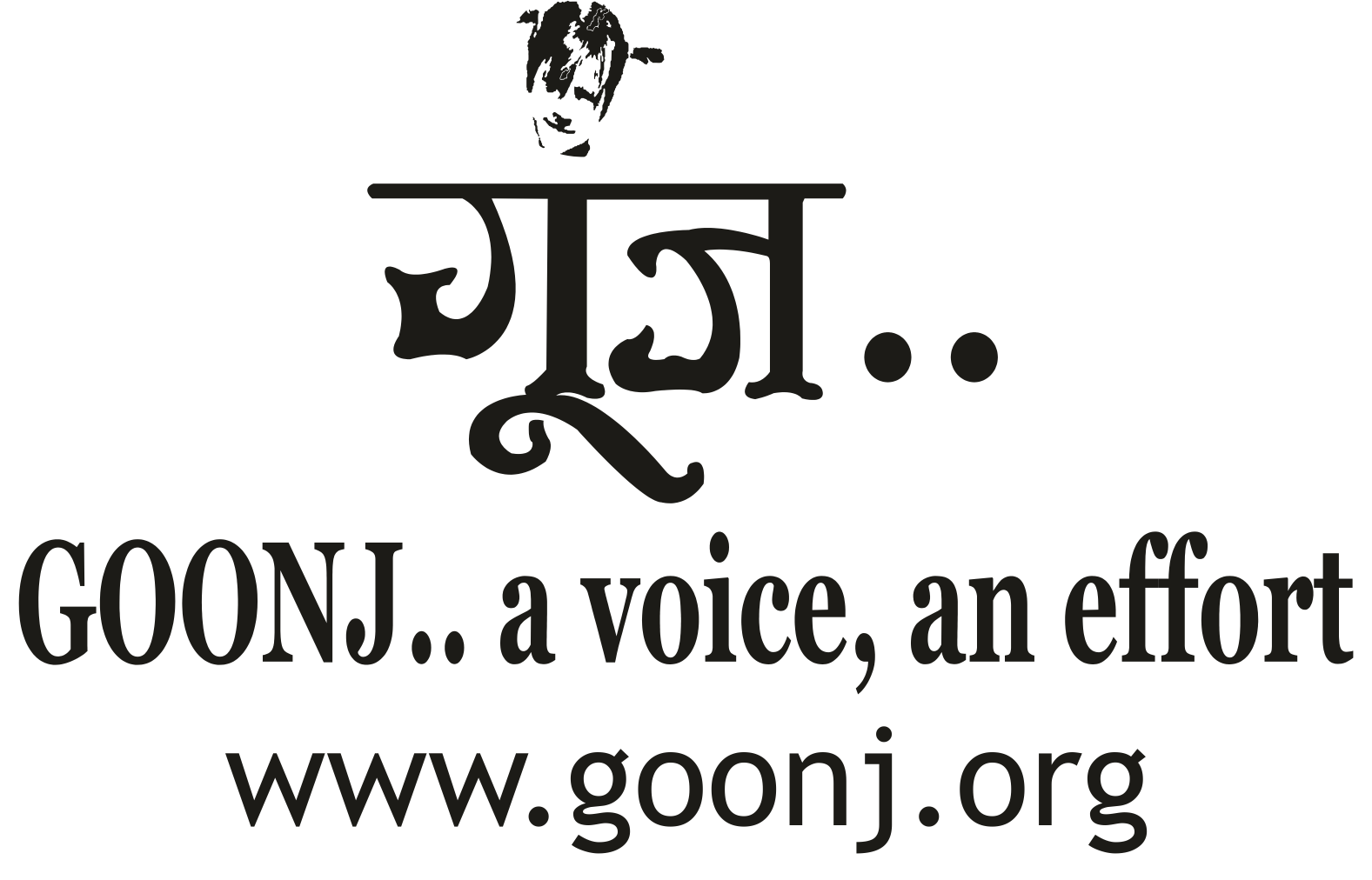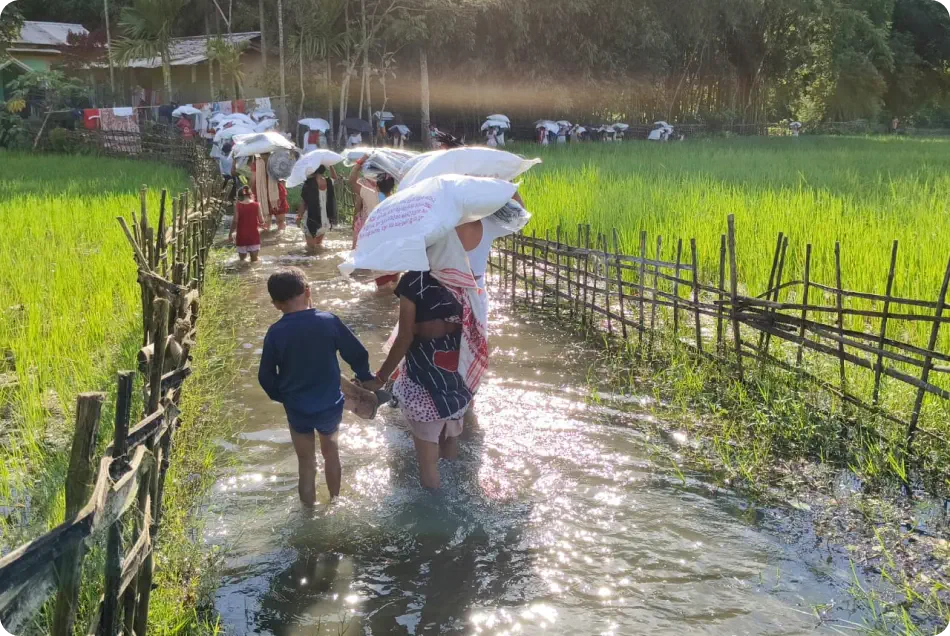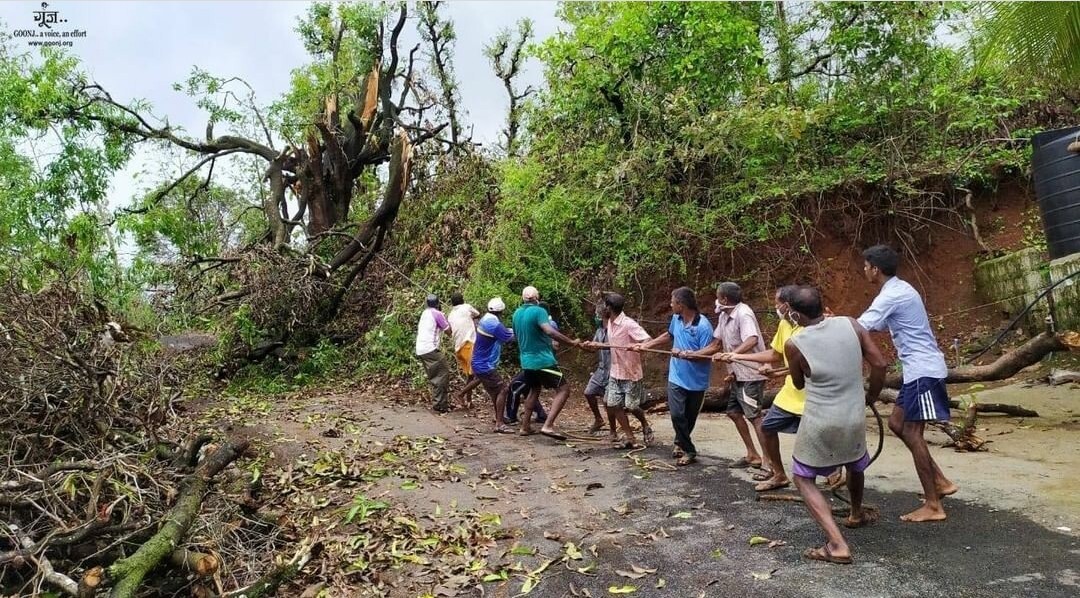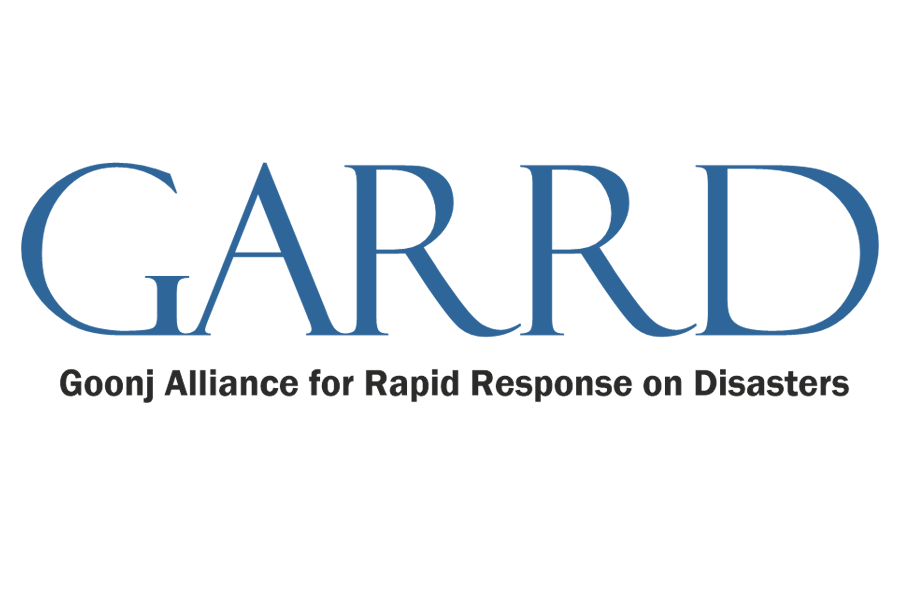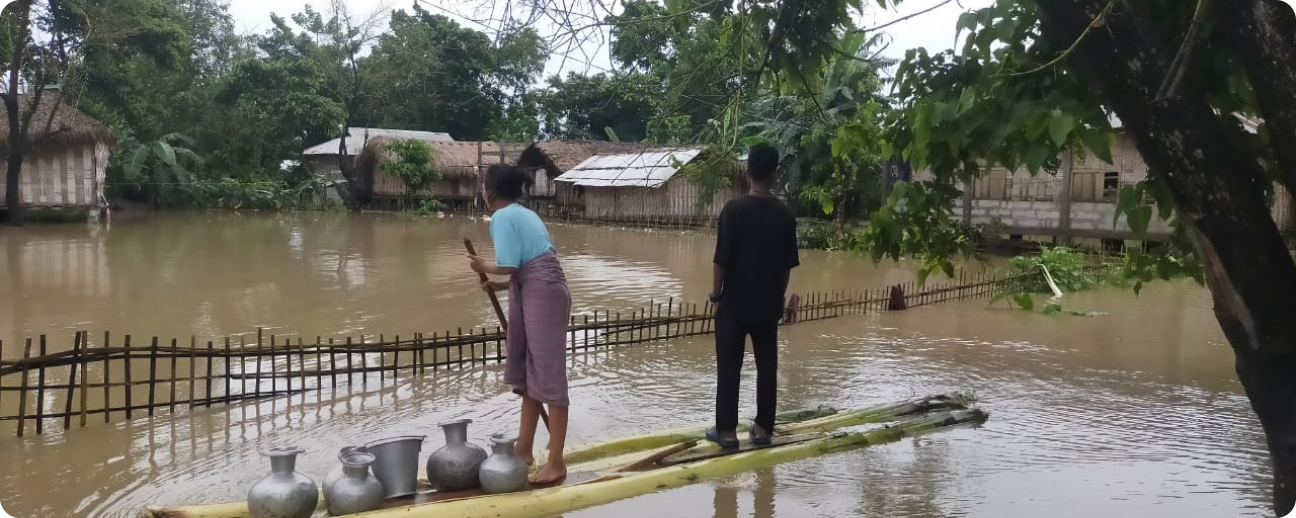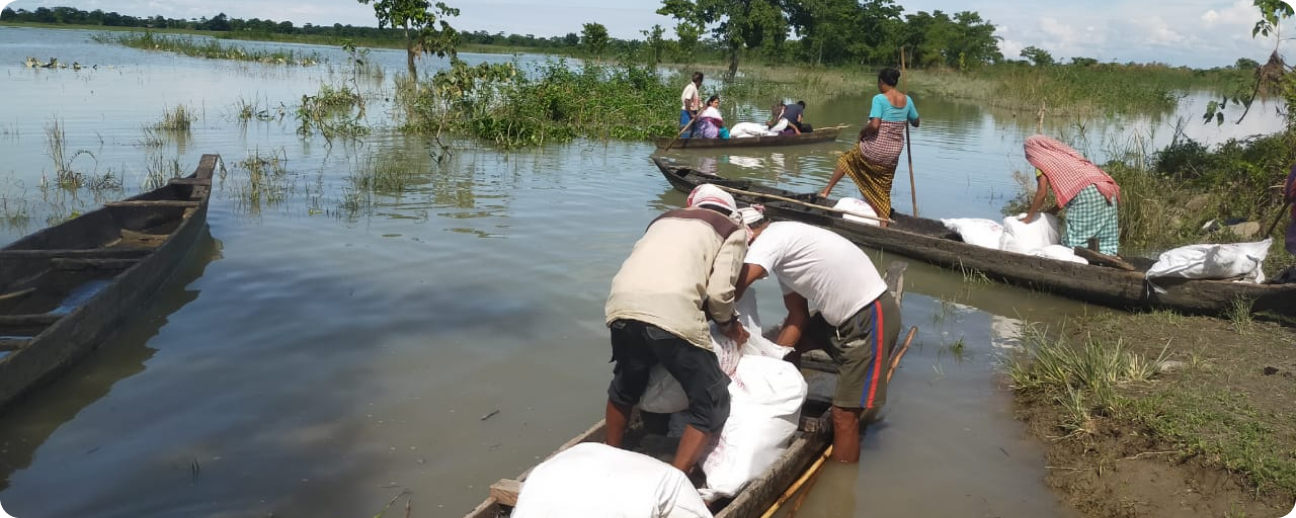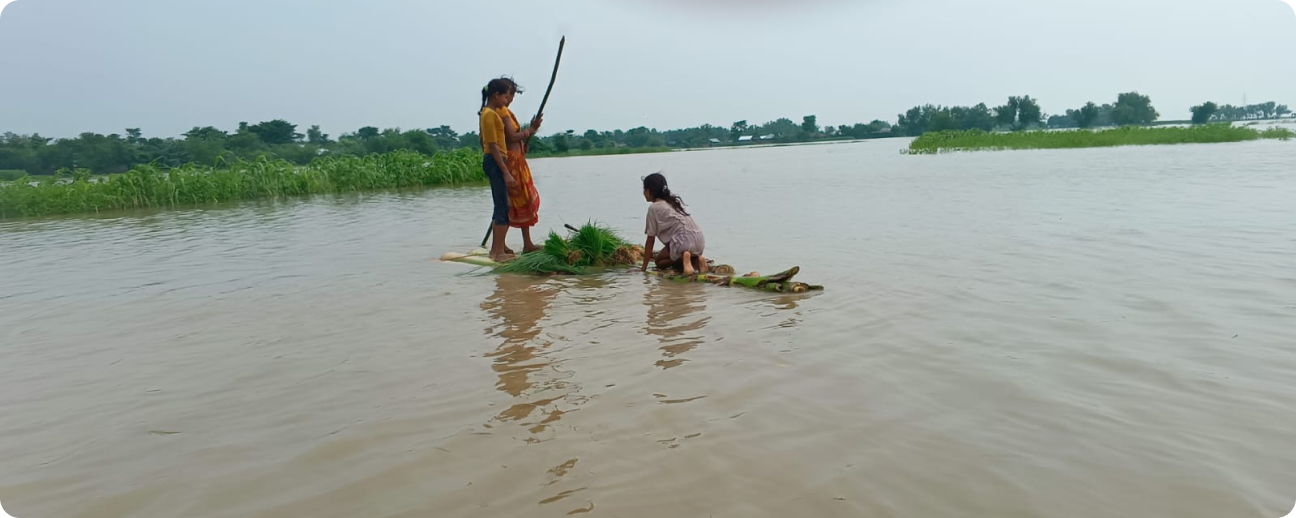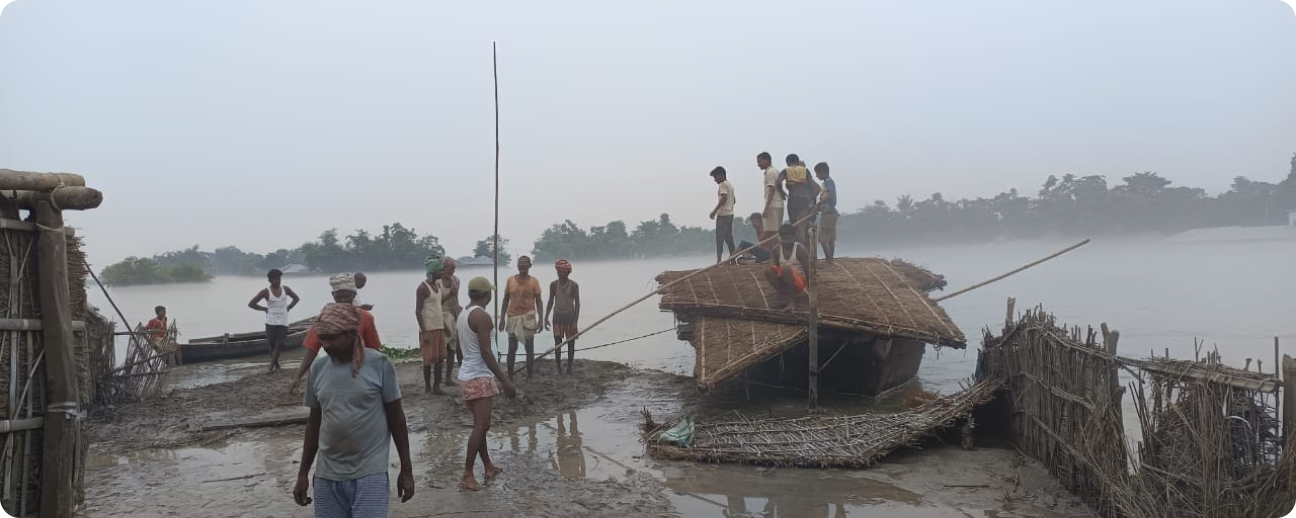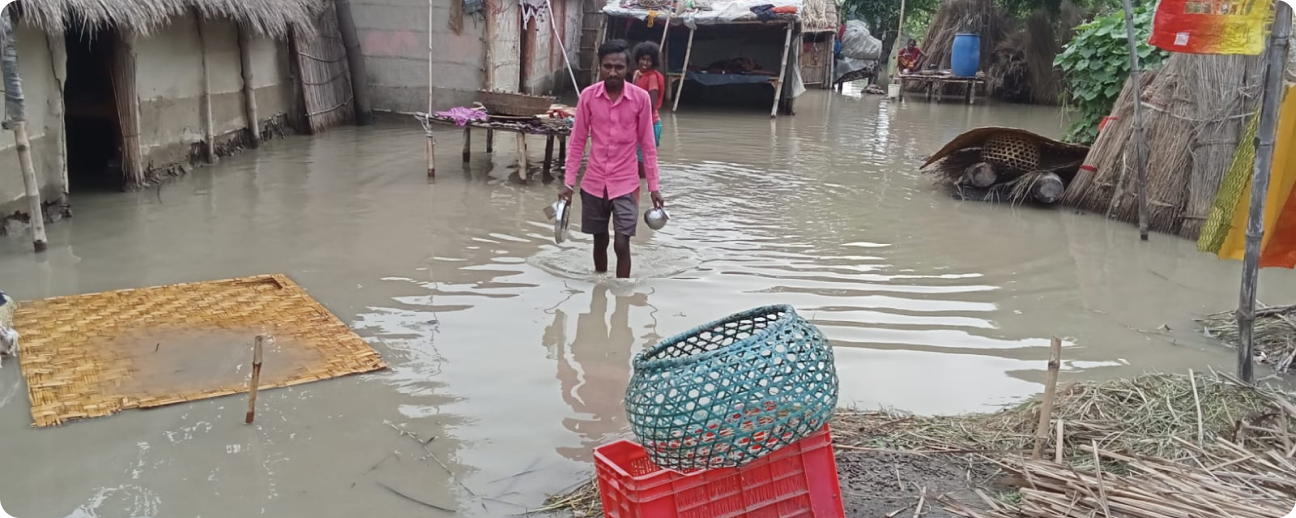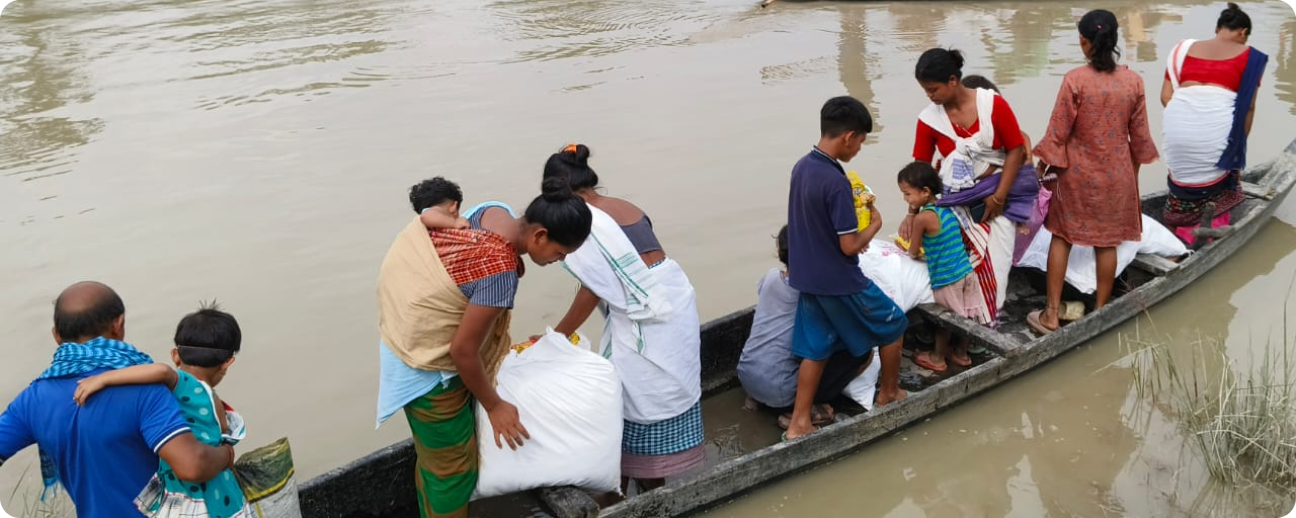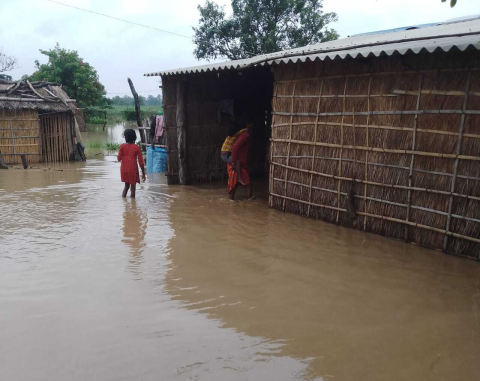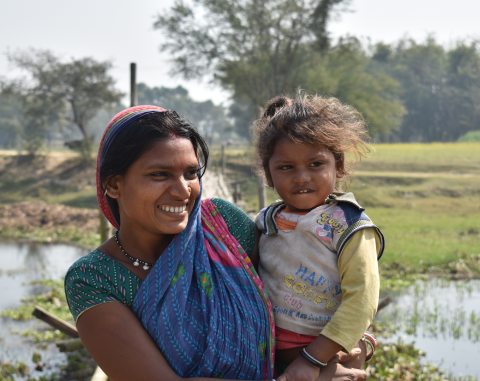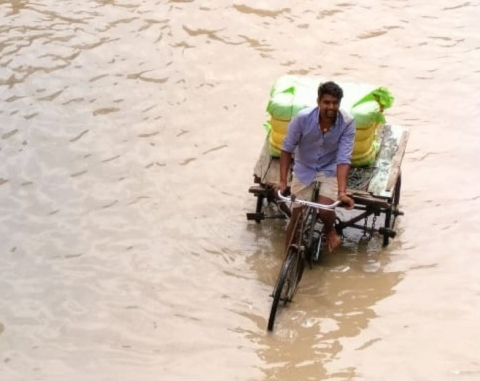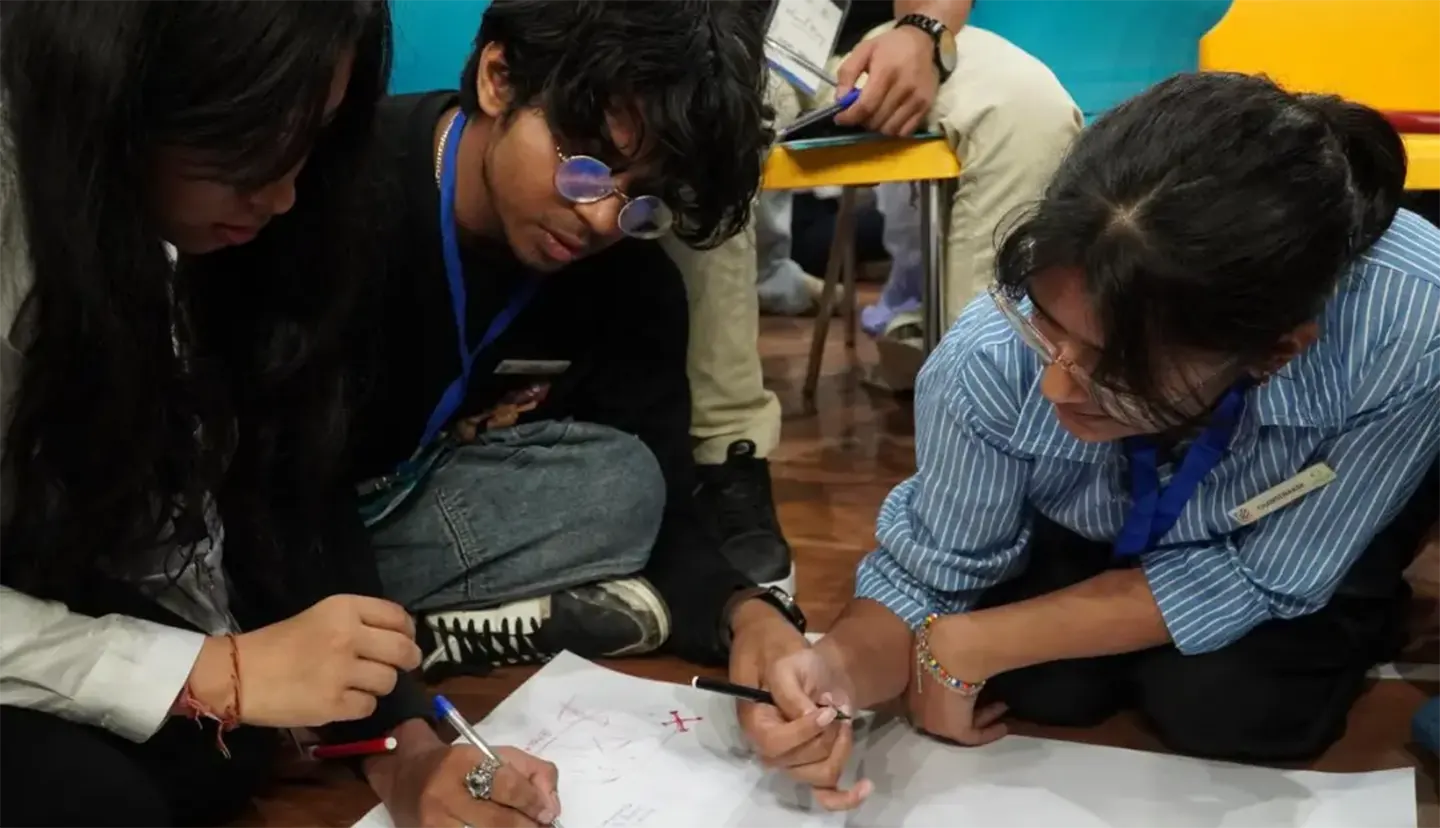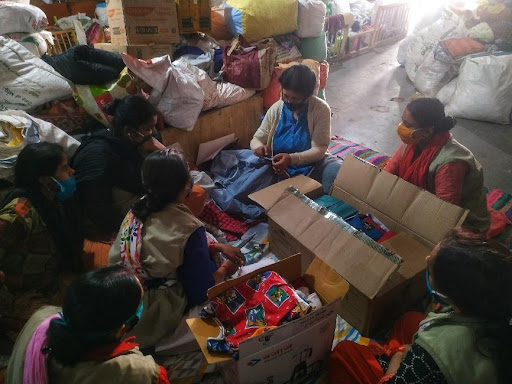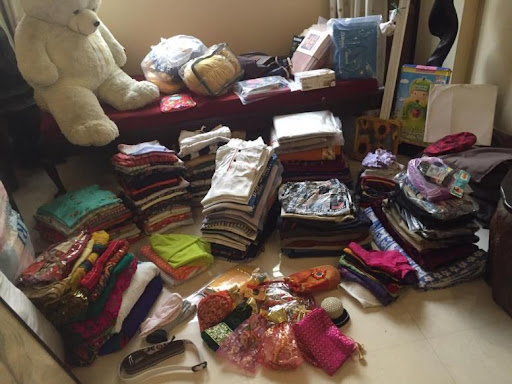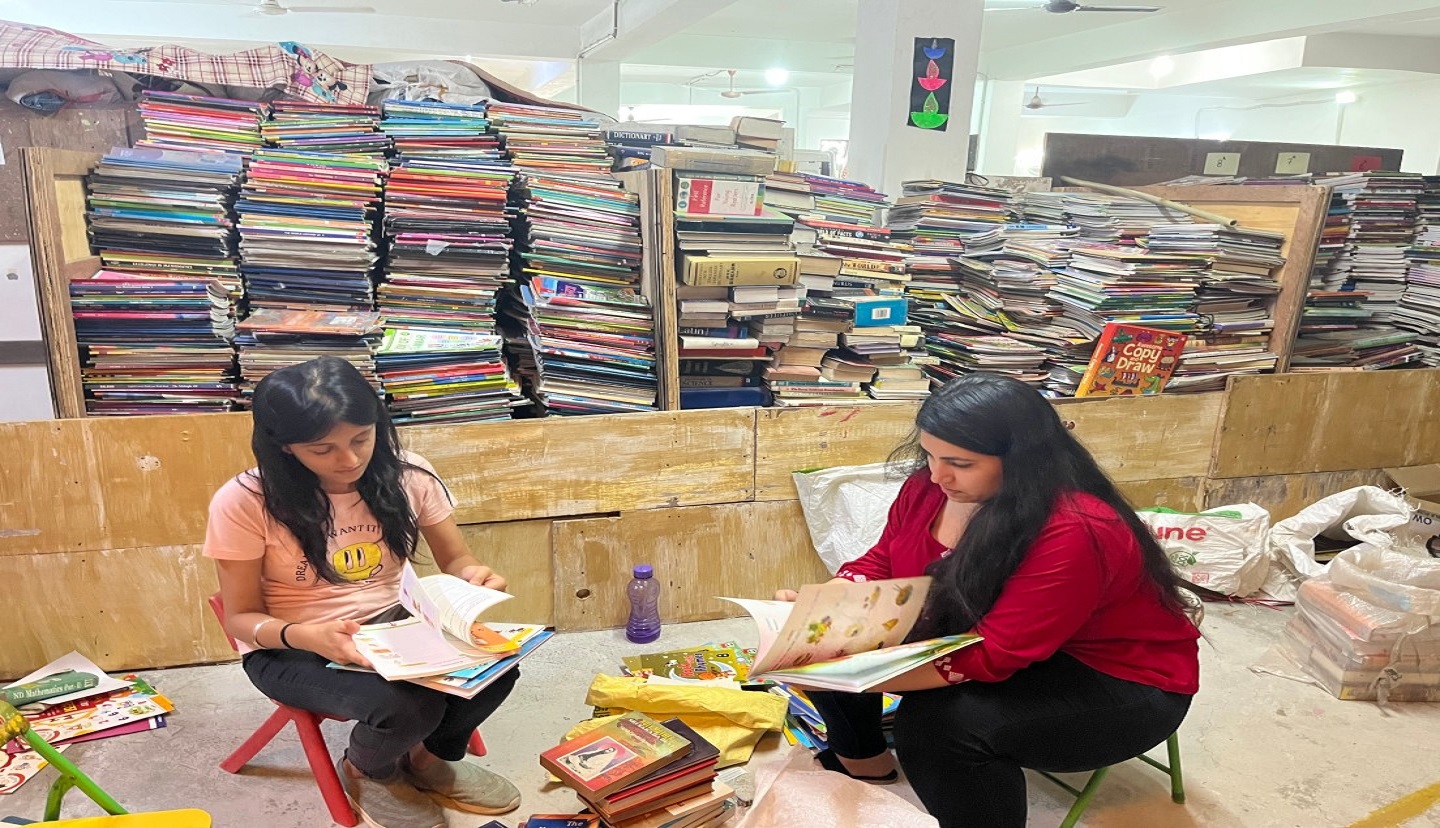Transforming Disaster Response and Mitigation by Combining Immediate Relief with Long-term Rehabilitation.
As climate emergencies escalate, with more frequent floods, droughts, storms, and global health crises like COVID-19, Goonj steps up to address both visible and overlooked crises like extreme heat and cold. By mobilising communities, repurposing resources, and focusing on long-term recovery, we transform disaster response—combining immediate relief with sustainable rehabilitation to help communities rebuild for the future
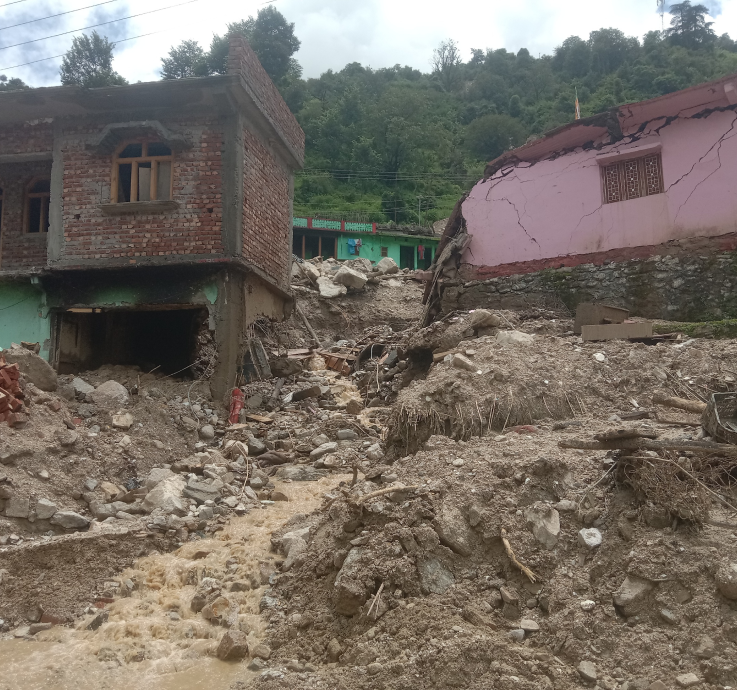
Our Approach to Climate Emergency
For over two decades, Goonj has responded to disasters with a focus on turning relief into a dignified exchange, where affected individuals actively contribute to and benefit from the recovery process.
Harnessing Communities and Resources to Tackle Escalating Climate Crises with Holistic Relief and Rehabilitation
Goonj emphasises local knowledge, resources, and participation, ensuring disaster solutions are co-created with affected communities. Through the GARRD Alliance, we engage urban, non-disaster-affected communities, involving stakeholders from the private sector, citizens, and civil society to strengthen resilience and climate action together.
Goonj addresses the social and economic inequalities that make certain groups more vulnerable to climate emergencies, ensuring disaster response respects dignity and turns recipients into active participants. The GARRD Alliance engages all segments of society, especially the most vulnerable, in climate action and disaster preparedness.
Goonj’s approach extends beyond immediate relief, focusing on long-term resilience by integrating disaster response with ongoing development work. We view climate emergencies as opportunities to address systemic issues like poverty, infrastructure deficits, and environmental degradation, promoting sustainable practices for future climate action.
Goonj fosters collaboration between local communities, NGOs, corporates, educational institutions, and citizens. Through the GARRD model, we create an “Alliance of Equals,” bringing diverse strengths together to tackle climate emergencies and achieve shared goals.
Our adaptable framework encourages innovation, allowing communities to tailor solutions to their specific climate challenges. The GARRD Alliance supports the use of new technologies and practices to enhance resilience and drive climate action.
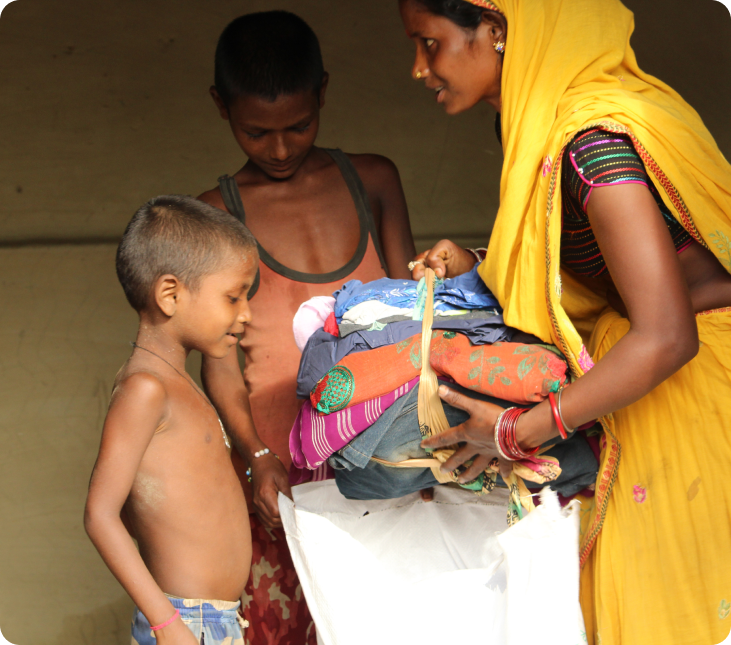
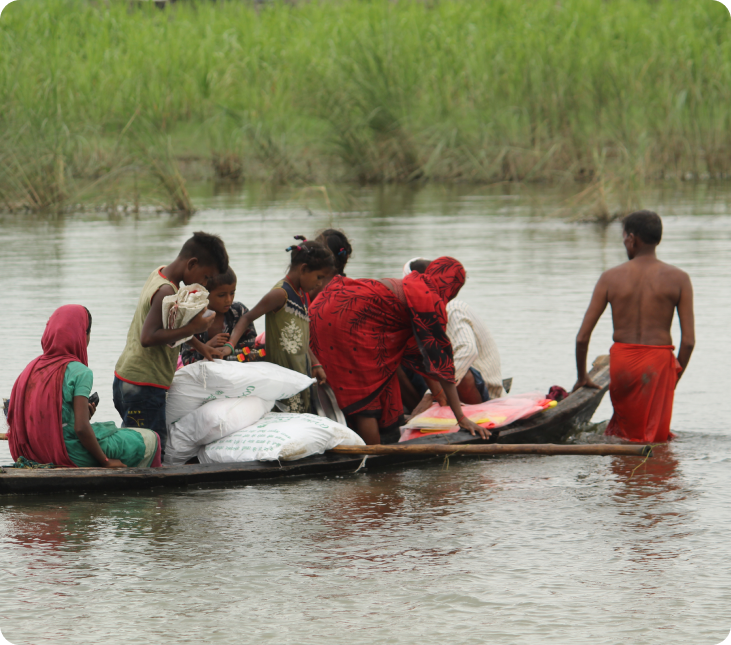
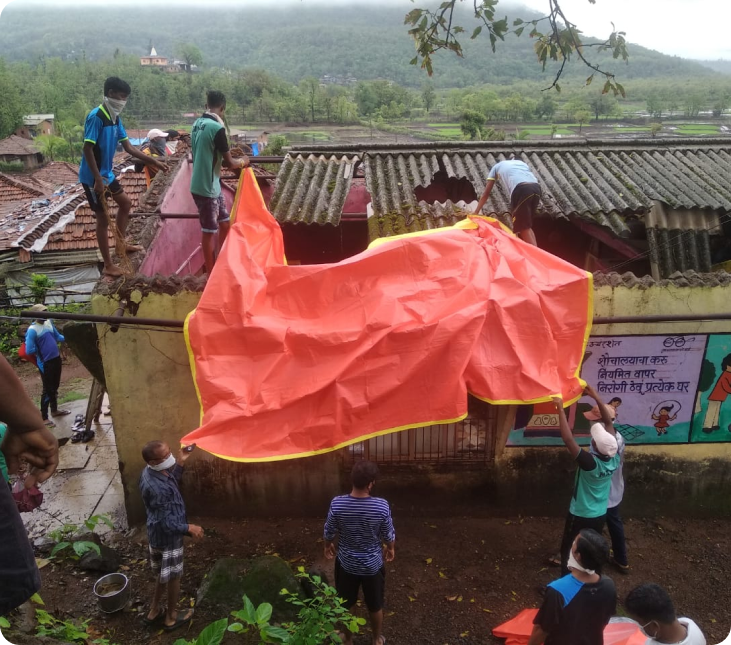
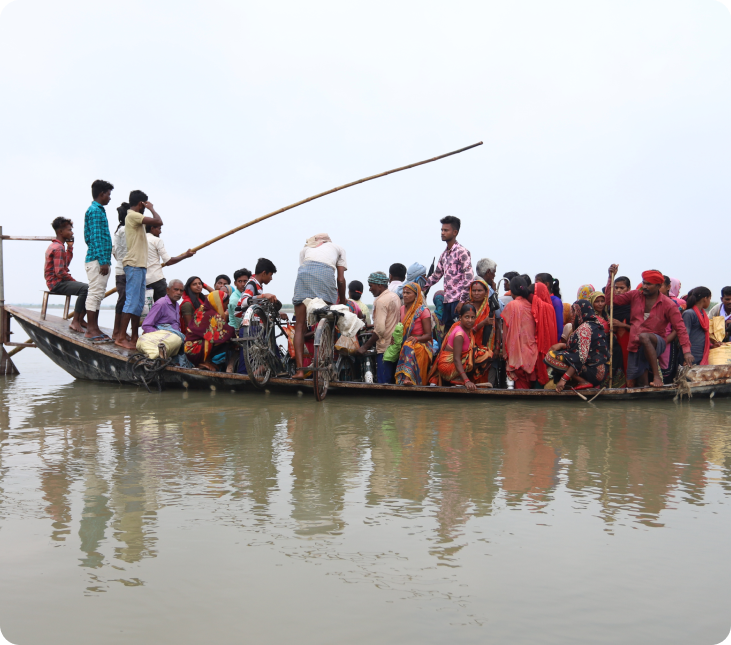
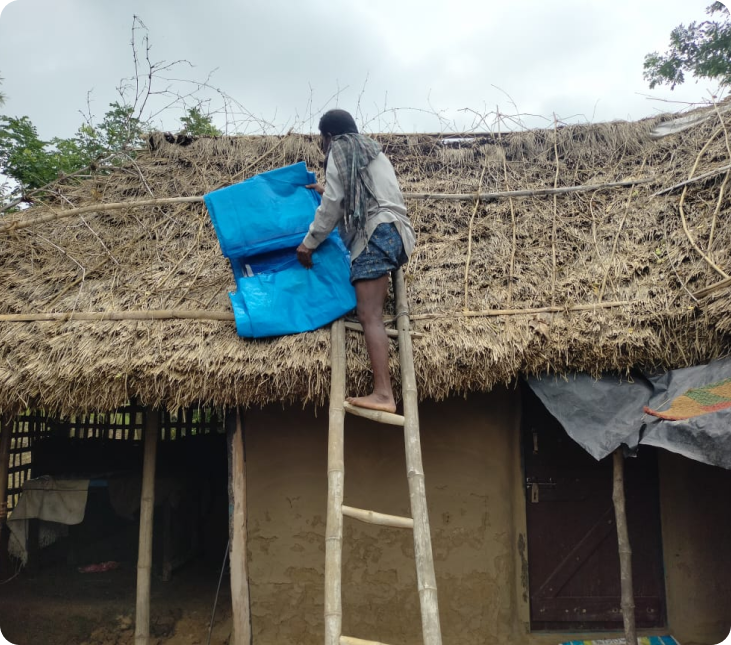
Transforming Climate Emergencies: GARRD Mitigation and Response Framework
A collaborative network of rural and urban stakeholders learning and working together in disaster and non-disaster time

Focus on bringing disaster response into the mind-set of each member of the alliance for their own organisational work and approaches

Ongoing collaborative of process of listening, learning and leveraging system changing actions in non disaster time
Well defined resource commitments in advance for disasters, by funders, community leaders and other stakeholders
Get Involved
Collaborate
Join the GARRD Alliance as a member. Introduce us to others who are a right fit
Commit
What you have – money, material, services, logistics, transportation, communication, etc for some familiar disasters like floods, cyclones, drought, fires, winters
To Know More
Our Work in Disasters
25 years of our Work
2023
Cloudburst and Flashflood in Himachal Pradesh, Uttarakhand, Floods in Delhi, Assam and Kerala, Gujarat (Cyclone Biparjoy)
2022
Floods in Andhra Pradesh, Assam, Delhi, Karnataka, Kerala, MP, Maharashtra, Rajasthan, Tamil Nadu, Telangana, Uttarakhand, Uttar Pradesh and West Bengal, Odisha (Cyclone Yaas)
2021
COVID-19, Tauktae Cyclone In Gujarat, Karnataka, Maharashtra, Tamil Nadu, and Floods in Assam, Bihar, Maharashtra, MP, Tamil Nadu
2020
COVID-19, Amphan Cyclone in West Bengal, Nisarga Cyclone in Maharashtra, Floods in Andhra Pradesh, Assam, Bihar, Chhattisgarh, Odisha and Telangana
2019
Fani Cyclone in Odisha Cyclone and Bulbul in West Bengal
2018
Northeast Floods,Kerala Floods, Titli, and Gaja Cyclones
2017
Floods in Assam, Bihar, Gujarat, Manipur, Odisha, Rajasthan, Uttarakhand, West Bengal
2016
Vardah Cyclone in Andhra Pradesh J & K and West Bengal Floods, Drought in Chhattisgarh, Drought in Chhattisgarh, Karnataka, MP, Maharashtra, and UP
2015
Cyclonic Storm and Earthquake in Bihar, Chennai Floods, Drought in Chattisgarh, Karnataka, MP , Maharashtra and UP
2014
Hudhud Cyclone in Andhra Pradesh J & K and West Bengal Floods, Drought in Chhattisgarh, Karnataka, Madhya Pradesh, Maharashtra, Uttar Pradesh
2013
Uttarakhand Floods, Muzaffarnagar Riots, Phailin Cyclone in Andhra Pradesh,Odisha and Drought in Chhattisgarh, Karnataka, MP, Maharashtra, and UP
2012
Assam floods
2011
Sikkim Earthquake and Odisa Floods
2009
Aila Cyclone, West Bengal and Odisha
2008
Kosi Floods, Bihar
2006
Assam, Bihar and West Bengal Floods
2004
Indian Ocean Earthquake and Tsunami
2002
Gujarat Riots
2001
Gujarat Earthquake
1999
Chamoli Earthquake and Odisha Super Cyclone
